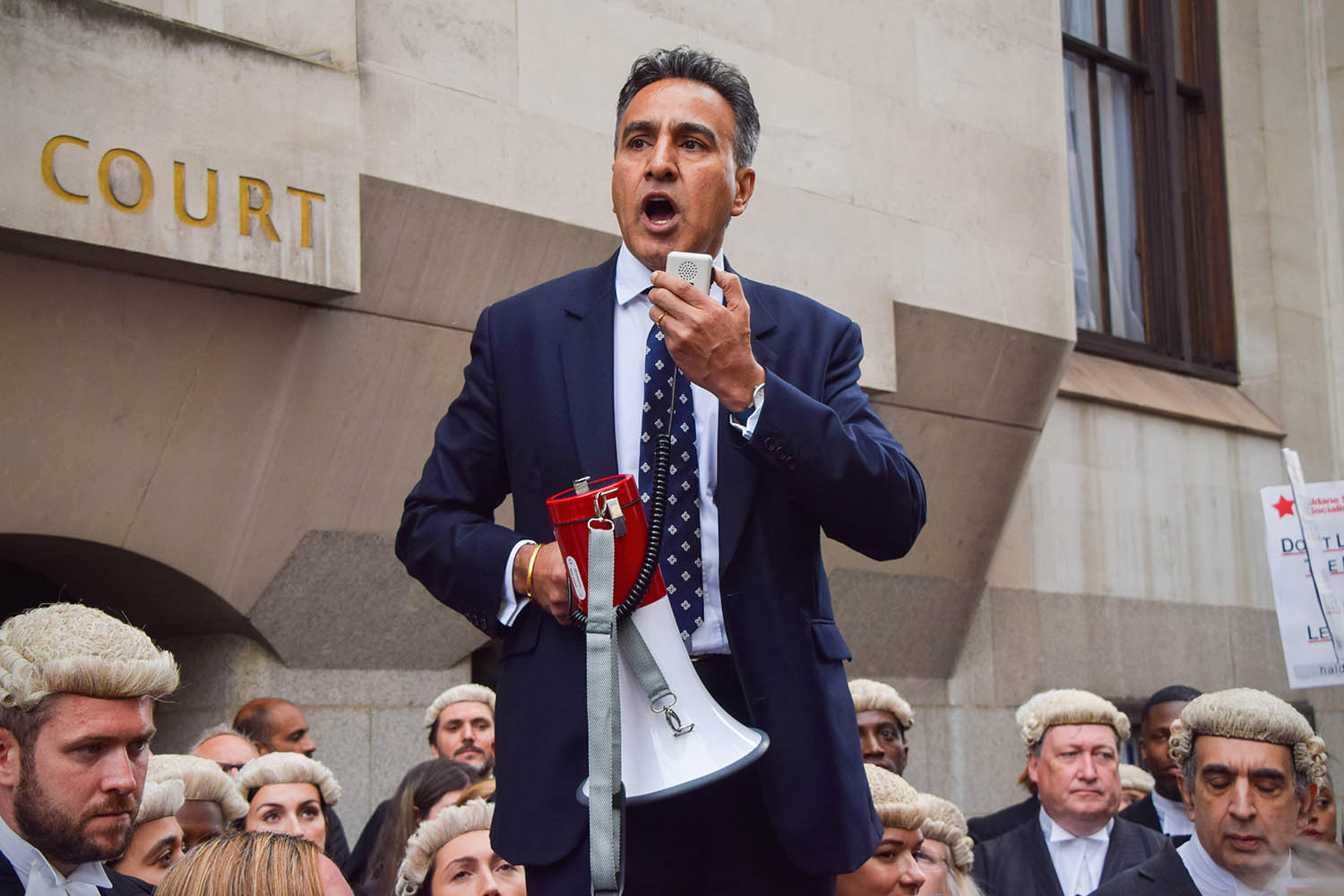
A senior British barrister facing charges of inappropriate behaviour and sexual harassment by four women is trying to keep his forthcoming disciplinary tribunal secret, Tortoise can report.
Jo Sidhu KC, who as chair of the Criminal Bar Association in 2022 spearheaded a high-profile campaign for higher legal aid fees, has instructed lawyers to ask for his misconduct hearing to be held behind closed doors.
Sidhu’s former solicitors subsequently warned the media not to publish this fact, in an email which explained that Sidhu was applying for anonymity and at the same time sought to impose a duty of confidence on journalists who had not agreed to it.
Ordinarily the Bar Standards Board, the barristers’ regulator, holds substantive misconduct hearings in public, while preliminary directions hearings are heard in private. Requests by the media including Tortoise for the opportunity to argue against the anonymity application have been refused: the judge said he would not hear any third party applications.
Any anonymity application is in any case now likely to be doomed, since yesterday the Times published confirmation from “senior sources” that Sidhu was the subject of complaints made by the four women. It’s understood that the women had disclosed their concerns to the Bar Council hotline “Talk to Spot”.
There is conflicting information as to whether Sidhu admits the charges brought by the Bar Standards Board while refusing to accept they amount to misconduct, or whether he intends to fight them.
Approached for clarification, his legal representatives declined to comment.
Sidhu’s intention to ask for anonymity in relation to alleged misconduct contrasts with an application made on Monday by family barrister Charlotte Proudman: she asked for a directions hearing in her own misconduct process to be opened to the public and made fully reportable.
Proudman argued that the charges against her – that she had tweeted criticism of a judge in trenchant terms which brought the profession into disrepute – should be thrown out on the basis of sex discrimination: she said that in pursuing misconduct findings against her the Bar Standards Board had treated her less favourably than it treated male barristers who had publicly criticised other judges and who were not charged.
She said she was also being treated less favourably than male barristers who had tweeted misogynistic and otherwise derisive and derogatory comments about her, and who had not been charged with bringing the profession into disrepute.
His Honour Judge Jonathan Carroll refused to make the directions hearing public, mainly on the ground that the privacy rights of the male barristers Proudman cited had to be protected. Their tweets remain online.
The judge also refused to hear argument from journalists from Tortoise, The Times, The Guardian and PA Media, who had attended in the hope of reporting on the case.
A judge has no power to make an order restricting what the media can publish from a Bar Standards Board disciplinary hearing. The effect of Carroll’s refusal to admit journalists on the grounds of protecting the cited barristers’ privacy rights is therefore zero, as Proudman was able to provide the media with her submissions and can comment freely on their contents.
